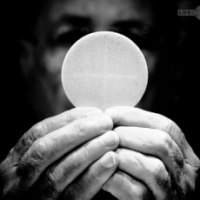I posted these in a comment to somebody, and thought they might be worth sharing: The best analogy I can think of to the Catholic understanding of salvation — and this has made all the difference in my life and in my Christian walk — is that we are trapped in our sins at the …
Continue reading “Analogies for the Catholic view of grace and salvation”
